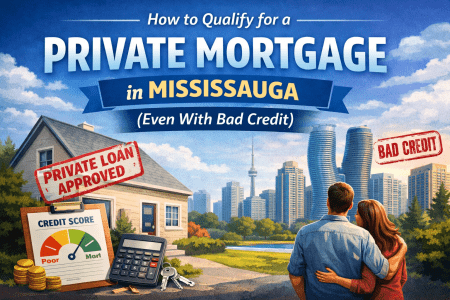Many people find that once they’ve retired, most of their financial assets lie in their home equity. Reverse mortgage loans, also known as home equity conversion mortgages (HECM, an FHA program), are an option available to individuals who need financial assistance after retirement or after the age of 62. You may be one of these individuals or the child of one seeking to relieve the financial stress of an aging parent.
Unfortunately, reverse mortgages can be confusing, and there’s a lot of misinformation regarding the pros and cons of reverse mortgage loans, muddying the waters. Is a reverse mortgage loan the right choice for your family? Read on to discover the facts about reverse mortgages and how they can help you or your loved ones.
What Is a reverse mortgage?
Reverse mortgages are aptly named because they act exactly like regular mortgages. They are loans borrowed against the equity already accrued in one’s home, where the lender makes payments to the borrower. Instead of sending checks to the bank, the bank sends checks to you.
This option is made to help seniors with limited income. The loan does not have to be repaid until the house fails to be a primary residence for over 12 months or if the resident dies. Typically, the house is then sold to repay the loan.
How does it work
In this internet age, a reverse mortgage is not an unheard phrase. However, not everyone is familiar with how reverse mortgages work. For those who know the inside out of the conventional mortgage, reverse mortgage presents a polar opposite structure for them. Let us look hard at what reverse mortgages are and how they work.
Reverse mortgages allow the borrowers to avail themselves of a monthly pay-off system instead of being obliged to make mortgage payments to the lender. Despite no obligation to make a pay-off to the lender, a reverse mortgage is a loan. You must fulfill some pre-set criteria to qualify for a reverse mortgage loan. These criteria are enlisted as follows:
- The minimum age limit must be 62 years to get the loan.
- You must be residing in the property that is to be mortgaged.
- The property must be in good condition to provide considerable proceeds.
- It is better if your property loan is not due. Even if it is due, the amount must be low enough to be paid off from the reverse mortgage proceeds.
The lenders consider various factors to decide how much loan you can receive. The amount of the loan largely depends on how much the house is worth. The location of your property, the ongoing market price, equities built up in your house, etc., determine the estimated value of your house. There are a good number of options to receive a reverse mortgage loan. The options are as follows:
- At-a-time payment in a lump sum format
- As a series of monthly payout
- As a line of credit that can be tailored-made according to your specifications
- Any possible combination of the above-stated options
A reverse mortgage is a good package with the best things punched in. The first nice thing is its flexible feature. The loan can be used for any purpose you wish. And as long as you are living in the same house, there is no need to worry about payback. However, if you decide to shift, the entire loan is due to the lender. The payback phase kicks off after the death of the last applicant.
The lenders have the legal right to foreclose your property if your heirs cannot pay off the loan. On foreclosure, the lenders auction the property to get back the dues in full, including interest. As you retain the title till your last breath (provided you are not going elsewhere), you are obliged to bear the cost for maintenance, tax payment and insurance premium.
Reverse mortgages are a good financial instrument for senior citizens. With them, they get some peace of mind as there is a good source of funds that supports them to leave the twilight years happily. Choosing a good lender is also important. You must understand all the rules and regulations while dealing with a reverse mortgage lender.
Who is eligible?
To qualify for a reverse mortgage loan, you must be at least 62 years old and a homeowner with significant equity in your home to make payments and settle the home when the loan is repaid.
You must also be able to afford the other home expenses, including property tax, homeowner’s insurance and any other maintenance fees. A financial assessment will determine a borrower’s residual income and credit score, although failing to meet the guidelines does not automatically disqualify you for a reverse mortgage.
However, once you begin receiving payments, you are not restricted in how you can spend the money from reverse mortgages.
Are there any upfront expenses?
Generally, reverse mortgages initially cost very little for appraisal fees and legal counsel, and the borrower is not responsible for any loan payments until the loan settlement. The bank does not own your home, even after the homeowner dies. The house is only ever considered collateral against the loan.
How can I receive payment?
There are several payment plans a borrower may choose from to fit their needs best. Here are the ways funds can be distributed:
- Lump Sum
- Monthly Annuity
- Combination of Lump Sum and Monthly Annuity
- Line of Credit
Legal or financial advice is suggested when choosing your reverse mortgage payment plan. Consider the long-term implications of property maintenance and how long you will be relying on reverse mortgage payments.
The amount you receive depends on a few factors, including the age of the youngest applicant, the home’s value, and the loan’s interest rate. If you are applying at a later age with a well-appraised home, for example, you will receive higher payments.
What are the terms of loan repayment?
The loan plus its interest must be paid in the event of the homeowner’s death or if the homeowner moves or otherwise sells the property. Neither the borrower nor their children are responsible for more than the worth of the house, even if the homeowner outlives the point where principal and interest are worth more than the original loan.
Reverse mortgage loans can be the right choice for many families, especially those struggling to make ends meet after retirement. A limited income combined with medical expenses can be made easier by borrowing against the equity you’ve already paid into. If you meet the requirements and are financially responsible, reverse mortgage loans can be a powerful solution to post-retirement income troubles.








